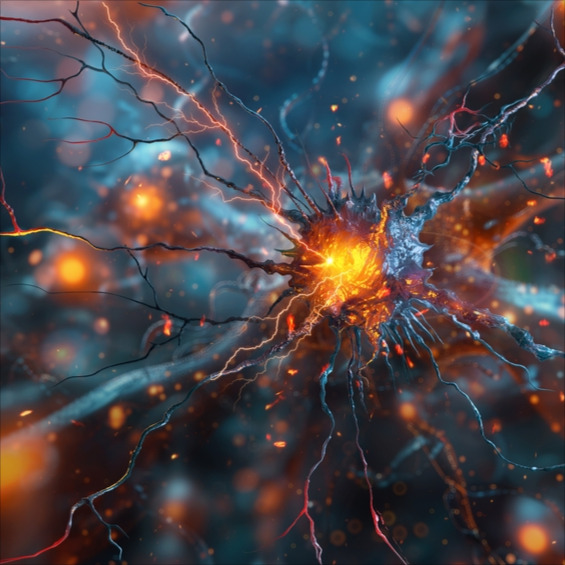
The power of magnetic fields: Protection against Huntington's disease?
A new blog post about the fascinating results of a comprehensive study on the effect of extremely low frequency electromagnetic fields (ELF-EMF) in the fight against Huntington's disease.
What is Huntington's disease?
Huntington's disease is a devastating neurodegenerative disease characterised by progressive cell death in the brain. It often leads to severe impairment of motor skills as well as cognitive and mental disorders. Oxidative stress, caused by reactive oxygen species (ROS), plays a key role in this damaging process. The body's defence mechanism against ROS is regulated by the transcription factor Nrf2, which controls the production of antioxidant enzymes and is therefore crucial for cell protection.
The study on ELF-EMF
The present study, published in the prestigious journal "Brain Stimulation", systematically investigated the effect of ELF-EMF on a Huntington's disease-like condition in rats induced by the chemical 3-nitropropionic acid (3-NP). 3-NP is known to inhibit an essential enzyme in the energy metabolism of cells, leading to oxidative stress and cell damage - processes that are also observed in Huntington's disease.
Results of the study
The results are promising: treatment with ELF-EMF led to a significant increase in Nrf2 concentrations in both the cytoplasm and the nucleus of the nerve cells. This suggests that ELF-EMF may strengthen the antioxidant defence by activating the Nrf2 signalling pathway, making the cells more resistant to oxidative stress and extending their lifespan.
Effect of 3-NP and the role of Nrf2
The study clearly showed that 3-NP not only reduced Nrf2 levels in the cytoplasm and nucleus, but also severely impaired the function of the affected cells. In contrast, ELF-EMF treatment caused a significant increase in Nrf2 levels in both areas, supporting that ELF-EMF can counteract 3-NP-induced Nrf2 depletion and increase the antioxidant capacity of cells.
Conclusions and outlook
The researchers conclude that ELF-EMF may modulate the expression and translocation of Nrf2 and thus exert an encouraging neuroprotective effect against 3-NP-induced cell injury. These findings open up new possibilities for the development of non-invasive therapeutic approaches for the treatment of Huntington's disease and other neurodegenerative diseases in which oxidative stress plays a crucial role.
Important clues for future research
Further research is needed to understand the exact mechanisms of ELF-EMF action and to confirm its therapeutic efficacy in humans. It should also be investigated how long-term exposure to ELF-EMF affects the progression of Huntington's disease. Nevertheless, these results offer a glimmer of hope in the fight against this devastating disease.
Keywords: Huntington's disease, ELF-EMF, oxidative stress, Nrf2, neuroprotection, 3-nitropropionic acid
